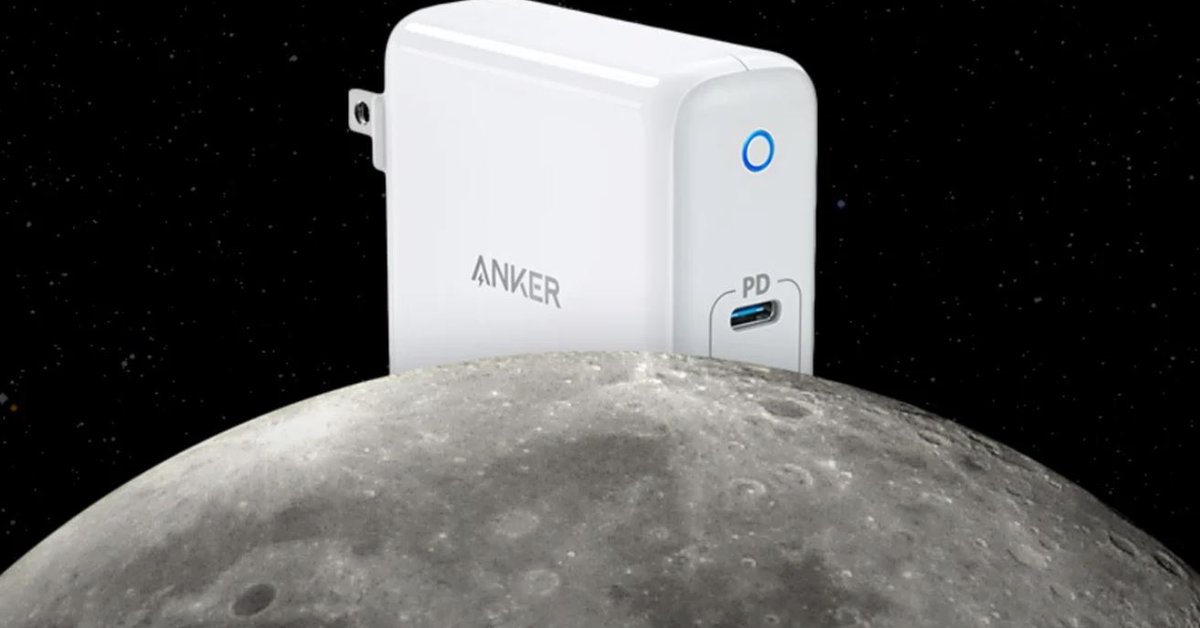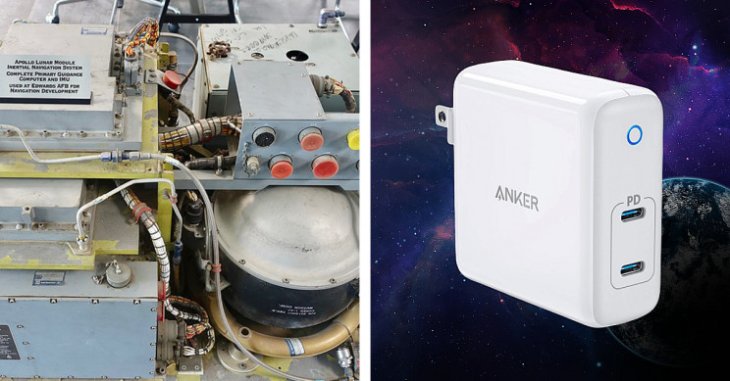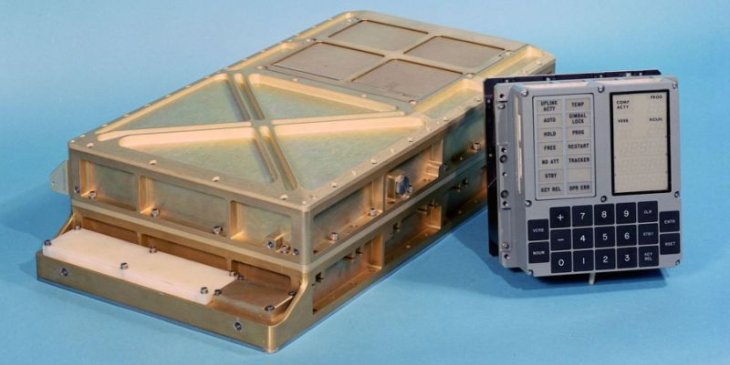Your USB Charger Is More Powerful Than The Apollo 11 Guidance Computer
Dhir Acharya - Feb 18, 2020

It turns out that the USB charger you used every day at home has much more power than the computer that took us to the Moon. How come?
- MacBook Chargers Are So Hot They Can Bake Cookies
- You May Soon Charge Your Phone From Across The Room
- Xiaomi Trolls Apple, Launching Cheaper & Lighter 20W Charger For iPhone 12 Series
It’s not shocking to think that our smartphones are more powerful than computers in the past, but a recent finding may be much more surprising. According to Forrest Heller, a developer from Apple, a modern USB charger can have even more processing power than the Apollo 11’s guidance computer that took it to the Moon in 1969.
If this conclusion is not specific enough for you, let’s simplify the two objects to their core.

In his blog post, the developer listed all the basic specifications and compared the processing power of some battery chargers including the Huawei 40W SuperCharge, the Google Pixel 14W, and the AnkerPowerPort Atom PD 2 with that of the guidance computer NASA developed half a century ago.
The guidance computer of the Apollo 11 featured a clock speed of 1.024 MHz while the AnkeRPowerPort Atom PD 2 clocks at 48 MHz. The 50-year-old computer has about 4KB RAM and 72KB storage while the Anker charger has 8KB RAM and 128KB flash memory. That makes the Anker charger able to store 1.78 times as many instructions and have twice the RAM as the Apollo 11 guidance computer.

All in all, Heller concluded that the modern charger works 563 times faster than the guidance computer of the Apollo 11.
So, does it mean your charger can take you to the Moon? Unfortunately, that’s highly impossible, because the task takes much more than just the processing power.
>>> Worried About Your Math Homework? Microsoft Has Got Your Back
Featured Stories

Features - Jan 29, 2026
Permanently Deleting Your Instagram Account: A Complete Step-by-Step Tutorial

Features - Jul 01, 2025
What Are The Fastest Passenger Vehicles Ever Created?

Features - Jun 25, 2025
Japan Hydrogen Breakthrough: Scientists Crack the Clean Energy Code with...

ICT News - Jun 25, 2025
AI Intimidation Tactics: CEOs Turn Flawed Technology Into Employee Fear Machine

Review - Jun 25, 2025
Windows 11 Problems: Is Microsoft's "Best" OS Actually Getting Worse?

Features - Jun 22, 2025
Telegram Founder Pavel Durov Plans to Split $14 Billion Fortune Among 106 Children

ICT News - Jun 22, 2025
Neuralink Telepathy Chip Enables Quadriplegic Rob Greiner to Control Games with...

Features - Jun 21, 2025
This Over $100 Bottle Has Nothing But Fresh Air Inside

Features - Jun 18, 2025
Best Mobile VPN Apps for Gaming 2025: Complete Guide

Features - Jun 18, 2025
A Math Formula Tells Us How Long Everything Will Live
Read more

Mobile- Feb 16, 2026
Xiaomi Launches Affordable Tracker to Compete with Apple's AirTag
For users tired of ecosystem lock-in or high prices, the Xiaomi Tag represents a compelling, no-frills option that delivers core functionality at a fraction of the cost.

ICT News- Feb 18, 2026
Google's Project Toscana: Elevating Pixel Face Unlock to Rival Apple's Face ID
As the smartphone landscape evolves, Google's push toward superior face unlock technology underscores its ambition to close the gap with Apple in user security and convenience.

Mobile- Feb 17, 2026
Anticipating the Samsung Galaxy S26 and S26+: Key Rumors and Specs
The Samsung Galaxy S26 series is on the horizon, sparking excitement among tech enthusiasts.
Comments
Sort by Newest | Popular